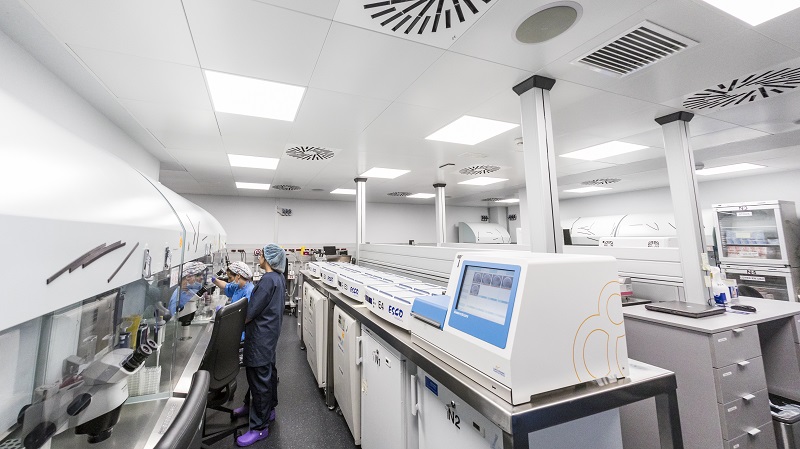

- Artificial Intelligence has made it possible to create the KIDScoreD5 system, which automatically analyses and classifies embryos, increasing the probability of gestation
- IVI has carried out the most extensive study to date, which has enabled it to demonstrate this clinical revolution in embryo selection using Artificial Intelligence
- This study on Artificial Intelligence and KIDScoreD5 is presented on the occasion of the 36th Congress of the European Society of Human Reproduction and Embryology (ESHRE)
IVI and Artificial Intelligence for embryo selection
Although the creation of the KIDScoreD5 system is a real revolution in embryo selection, IVI’s relationship with Artificial Intelligence to make improvements in this field goes way back. IVI has participated in the development of the EmbryoScope, an incubator with time-lapse technology that was created with the aim of helping in the development of automatic embryo selection. Now we present a new advance from the EmbryoScope: the very latest software, KIDScoreD5, which allows automatic embryo selection and classification.
To achieve the development of this advanced software, IVI has carried out a study over the last three years, with the largest case study in scientific history to date, including the analysis of 20,000 embryos and 3,000 patients. Through this study, IVI has revolutionized the embryology sector, enabling universal, standardized and automatic embryo selection.
What is KIDScoreD5 and how does it work?
Dr. Marcos Meseguer, Scientific Supervisor of IVI Valencia and principal investigator of this study, talks to us about the KIDScoreD5 system: “The KIDScoreD5 system classifies embryos automatically using Artificial Intelligence, it detects and evaluates all the steps in the development of the embryo and also classifies its morphology”.
The KIDScoreD5 system analyses the embryos automatically and classifies them from one to ten, based on their quality and morphology. Compared to manual selection, automated embryo selection is more accurate, the probability of a successful pregnancy is directly related to the percentage score and, therefore, the patient has a greater chance of success.
Main values of the study and the KIDScoreD5 system:
In the field of assisted reproduction, this is the first time that automated embryo analysis has been shown to have clinical utility
- The world’s largest case study to date, which is the largest example and guarantee of the reliability of the system
- More information about each embryo and therefore more chances to choose the best one for transfer
- Ability to select and chromosomally categorize the best embryos, which increases pregnancy rates and reduces the likelihood of chromosomal abnormalities.
- Totally non-invasive technique that improves all current selection methods
As Dr. Meseguer points out: “We have seen that the KIDScoreD5 system makes an assessment to distinguish between those embryos that are more likely to be chromosomally normal, euploid embryos, and those that are not, aneuploid embryos. Based on the score the system gives each embryo, we know its probability of gestation and the possibility of taking a healthy baby home”.




Comments are closed here.